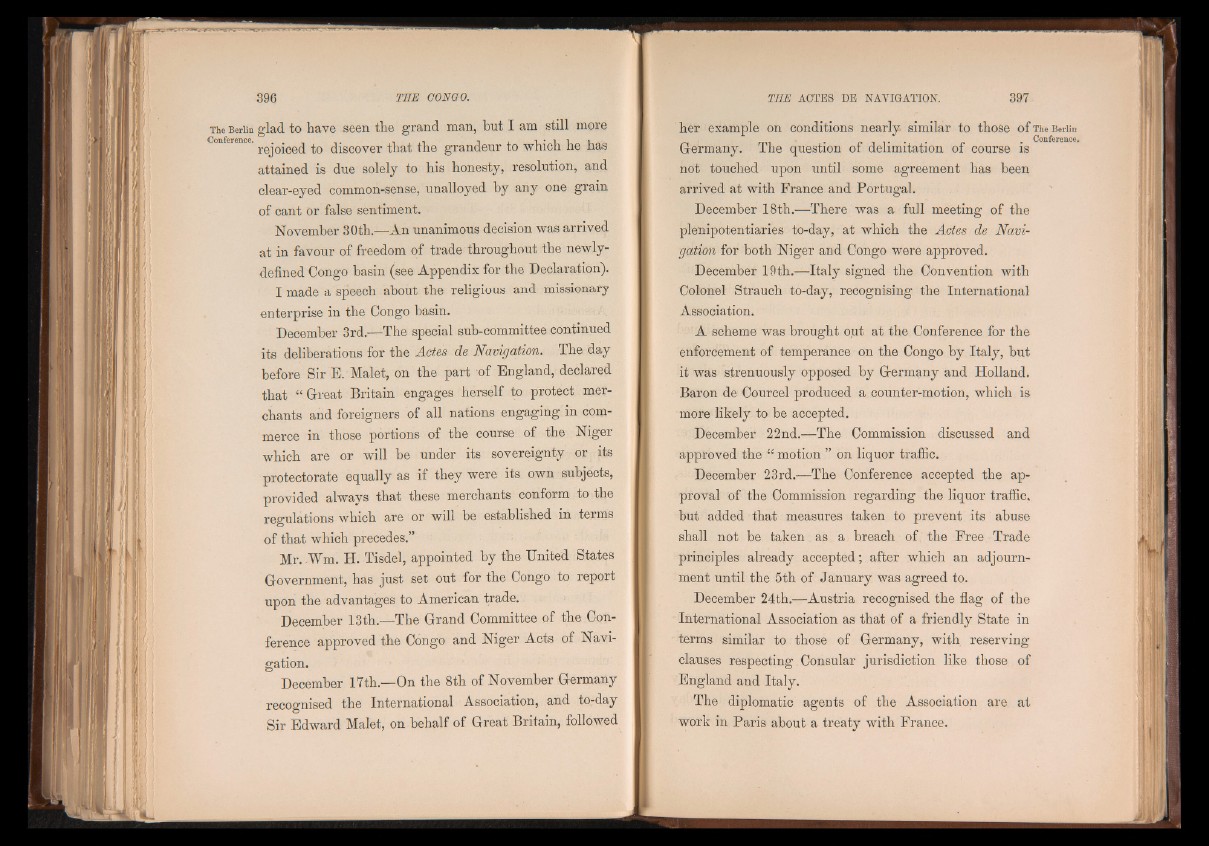
glad to have seen the grand man, but I am still more
rejoiced to discover that the grandeur to which he has
attained is due solely to his honesty, resolution, and
clear-eyed common-sense, unalloyed by any one grain
of cant or false sentiment.
November 30th.—An unanimous decision was arrived
at in favour of freedom of trade throughout the newly-
defined Congo basin (see Appendix for the Declaration).
I made a speech about the religious and missionary
enterprise in the Congo basin.
December 3rd.—The special sub-committee continued
its deliberations for the Actes de Navigation. The day
before Sir E. Malet, on the part of England, declared
that “ Great Britain engages herself to protect merchants
and foreigners of all nations engaging in commerce
in those portions of the course of the Niger
which are or will be under its sovereignty or its
protectorate equally as if they were its own subjects,
provided alwavs that these merchants conform to the
regulations which are or will be established in terms
of that which precedes.”
Mr. .Vm. H. Tisdel, appointed by the United States
Government, has just set out for the Congo to report
upon the advantages to American trade.
December 13th.—The Grand Committee of the Conference
approved the Congo and Niger Acts of Navigation.
December 17th.—On the 8th of November Germany
recognised the International Association, and to-day
Sir Edward Malet, on behalf of Great Britain, followed
her example on conditions nearly similar to those of The Berlin
Germany. The question of delimitation of course is
not touched upon until some agreement has been
arrived at with France and Portugal.
December 18th.—There was a full meeting of the
plenipotentiaries to-day, at which the Actes de Navigation
for both Niger and Congo were approved.
December 19 th.—Italy signed the Convention with
Colonel Strauch to-day, recognising the International
Association.
A scheme was brought out at the Conference for the
enforcement of temperance on the Congo by Italy, hut
it was strenuously opposed by Germany and Holland.
Baron de Courcel produced a counter-motion, which is
more likely to be accepted.
December 22nd.—The Commission discussed and
approved the “ motion ” on liquor traffic.
December 23 rd.—The Conference accepted the approval
of the Commission regarding the liquor traffic,
but added that measures taken to prevent its abuse
shall not be taken as a breach of the Free Trade
principles already accepted; after which an adjournment
until the 5th of January was agreed to.
December 24th.—Austria recognised the flag of the
International Association as that of a friendly State in
terms similar to those of Germany, with reserving
clauses respecting Consular jurisdiction like those of
England and Italy.
The diplomatic agents of the Association are at
work in Paris about a treaty with France.